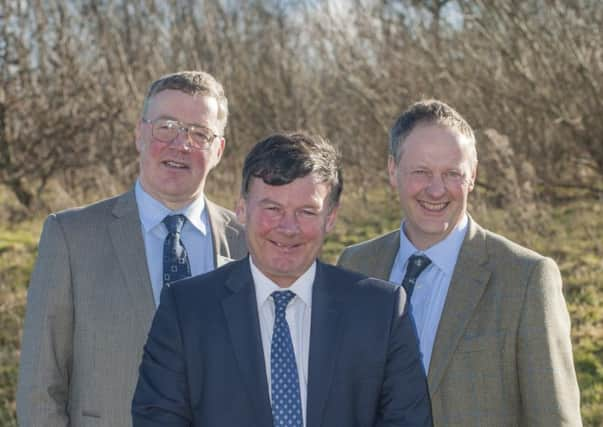Andrew Arbuckle: New union leaders face tough hurdles
This article contains affiliate links. We may earn a small commission on items purchased through this article, but that does not affect our editorial judgement.


Not only do they have to try and work out how to keep food production high on the agenda in a post-Brexit world along with the myriad of other issues on their agenda, there is the frisson of internal conflict.
Both current vice-presidents, Rob Livesey and Andrew McCornick, have their eyes focused on grasping the presidential seat from the current occupant, Allan Bowie, who has sat in it for two years but who wants to continue as head honcho of the 9,500 member organisation.
Advertisement
Hide AdAdvertisement
Hide AdMeanwhile, three good men and true – note the union only has men at the top of its tree – have decided they want to climb the greasy pole from being directors to the more onerous role of vice-presidents.
They come from differing sectors and from divergent parts of the country. To that is added the different personalities of Gary Mitchell, the opinionated dairy farmer from Stranraer, Martin Kennedy, the thoughtful hill farmer from Aberfeldy, and Tom French, the quiet communicator from Biggar. The electorate is spoilt for choice.
Several points arise from this list of wannabe farming leaders. The obvious one is that is it proof of a healthy organisation as anybody that struggles to find office-bearers is dying on its feet. That cannot be said of the union.
Another reason for the rush of candidates – and with the deadline a week away other contenders could come forward – is that the membership is none too happy with the direction this lobbying organisation is taking. But it should be remembered that in the current situation, no-one knows the correct route to take post-Brexit and that includes the UK government. It would be wrong to describe the current political leadership of this country as resembling that of a headless chicken. It is more akin to a whole flock of headless chickens.
Another possibility is the flurry of names pitching for the top posts in the union might be based on dissatisfaction with the performance of the top trio. Quite apart from the uncertainties brought about by Brexit, it has been a tough old year for farming leaders with everything from low commodity prices to dodgy computers.
But that is what they are paid for and it is worth noting the financial reward for being union president is now just over £60,000 per annum while his two lieutenants get half of that. Set against the average farm income, that is not to be sneezed at but compared with the pay rates for those sitting across the negotiating table, be they politicians or business leaders, it is on the low side.
Any internal tension in the union will be low key. There will be no need for the staff to remove the knives when the lunch is brought into the boardroom. After all, the aspiring leaders will have to spend most of next month touring the country together touting for support.
This countrywide hustings tour may seem slightly strange in that only the 100 or so members of the union council will have a vote at the agm in February. Odd that is until it is remembered the US has just elected its president by a similar electoral college.
Advertisement
Hide AdAdvertisement
Hide AdIt is to be hoped the candidates do not opt for the campaigning methods used by either the American politicians or the Brexiteers, who introduced the world to what is called post truth or more accurately lying to suit the occasion and the crowd.
Whichever trio emerges at the top of the pile faces one of the most difficult periods in the 100-year history of the union. They will face a UK government aiming to remove farm support payments and a Scottish Government still smarting from being criticised over the computer fiasco. And these are just the political hurdles.
The union election is more important than it used to be when presidents were only allowed 365 days in office and paid officials played a bigger role in running the organisation. One chief executive, Harry Munro, saw 22 presidents come and go in his time. Now the president has more influence on policy.
Who will come out on top? Previous union elections have shown it to be a conservative organisation. More specifically? (sorry, run out of space).
